Shakespeare’s Grave and Funerary Monument- Discover Shakespeare’s Burial Place in Stratford-upon-Avon
Purchases made through links earn us a small commission, at no extra cost to you.
Within the peaceful confines of Holy Trinity Church in Stratford-upon-Avon lies the unassuming grave of celebrated playwright and poet William Shakespeare.
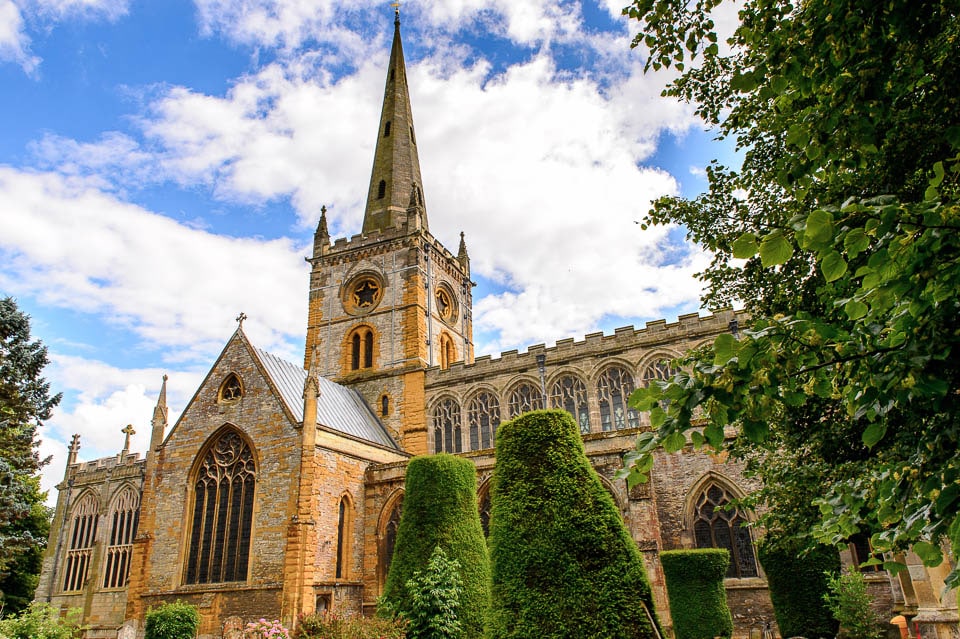
Visitors from around the world make the pilgrimage to Shakespeare’s grave to pay homage to a writer whose words have shaped the English language and art of storytelling. Whether you’re an admirer of his literature or curious about his legacy, standing before Shakespeare’s grave offers a moment of connection to history, creativity, and the timeless power of the written word.
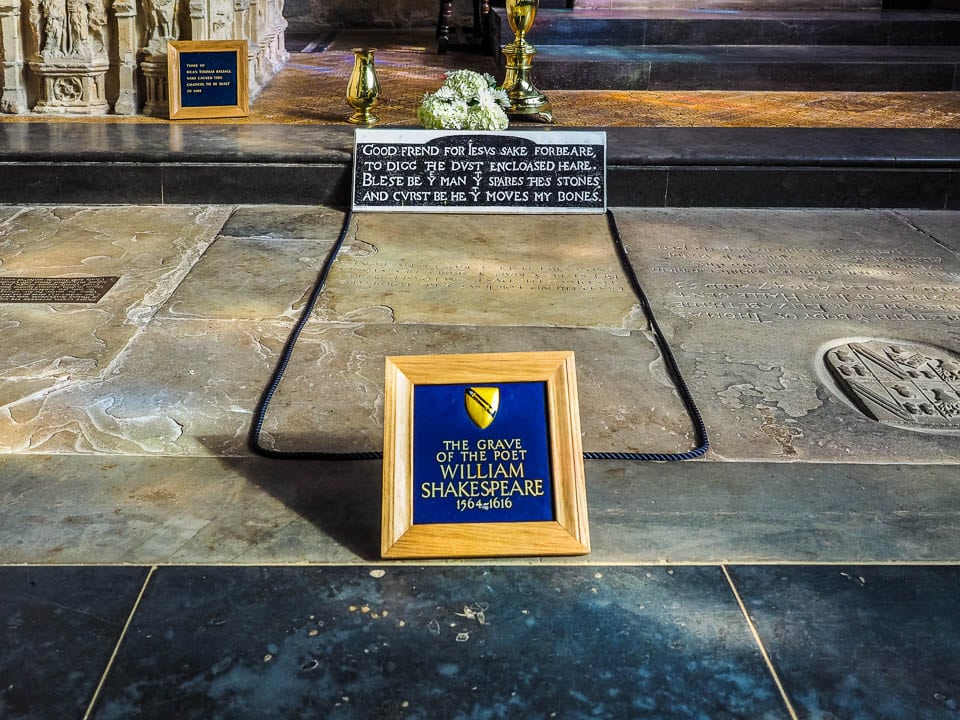
Before we share some information about Shakespeare’s burial place and what to expect when visiting it, here’s a brief background about William Shakespeare and his career.
In This Post
Who Was William Shakespeare?
William Shakespeare was born in 1564 in Stratford-upon-Avon, England to John Shakespeare, a glove maker, and Mary Arden.

After marrying at age 18, Shakespeare moved to London where he began his literary career in the mid-1580s or early 1590s. He got his start as an actor, writer, and shareholder in a theatrical company called Lord Chamberlain’s Men, later renamed to the King’s Men after being awarded a royal patent by King James I. Shakespeare’s company was not only the leading theatrical company in London, but is known for building the Globe Theatre.
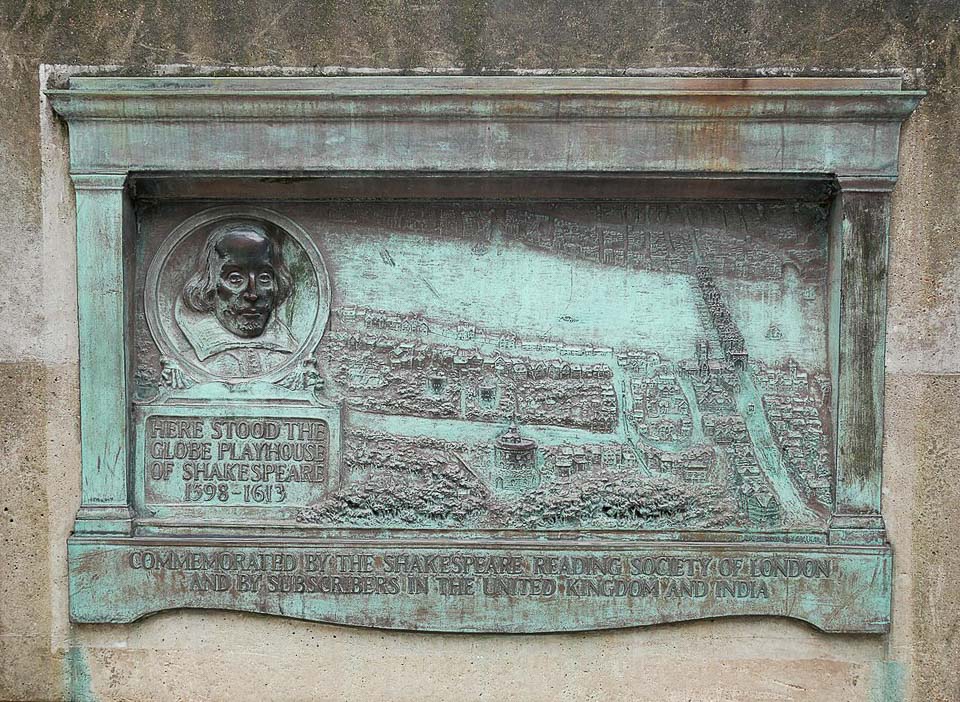
Throughout his life, Shakespeare authored at least 37 plays (there is debate about the exact number), 154 sonnets, and 3 narrative poems. His works include the famous tragedies Romeo and Juliet, Macbeth, and Hamlet and the beloved comedies A Midsummer Night’s Dream, Twelfth Night, Much Ado About Nothing, and As You Like It.
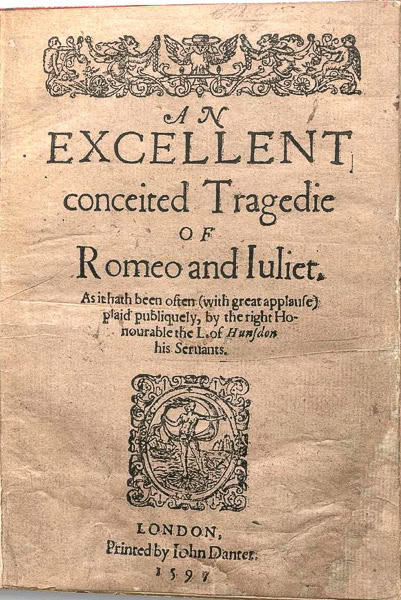
Shakespeare retired to Stratford-upon-Avon around 1613, where he spent his final years. He died on April 23, 1616, at the age of 52 and was buried at Holy Trinity Church two days after his death.
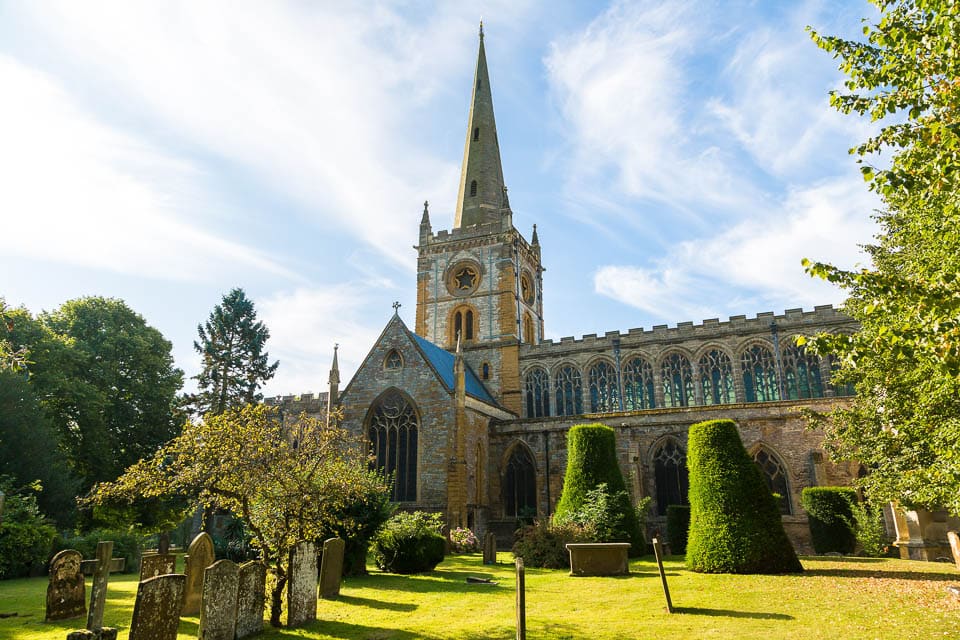
Shakespeare’s works have been translated into every major language and he remains the world’s best-selling playwright. His plays continue to be performed and studied worldwide.
Shakespeare’s Grave
William Shakespeare’s grave is located in the 15th century chancel of the Holy Trinity Church in Stratford-upon-Avon. This church was significant to Shakespeare as it was where he was baptised and attended services.
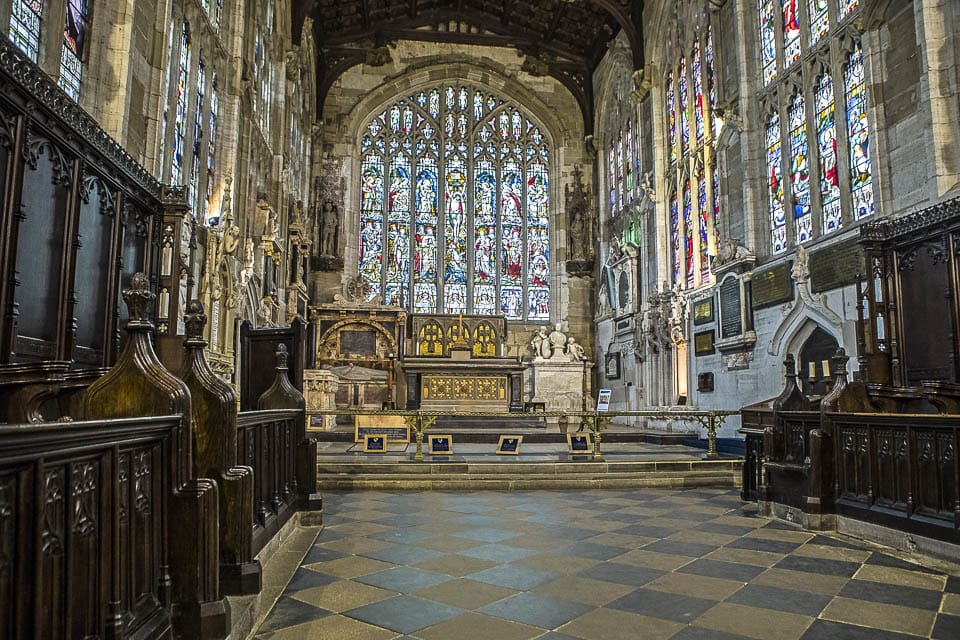
Shakespeare’s burial place in the chancel, the space around the altar, was granted to him because of his financial contribution to the church and position as lay rector, not because of his fame. His family inherited the right to be buried here so Shakespeare’s wife Anne Hathaway, daughter Suzanna, son-in-law John Hall, and grandson-in-law Thomas Nash are buried alongside him.
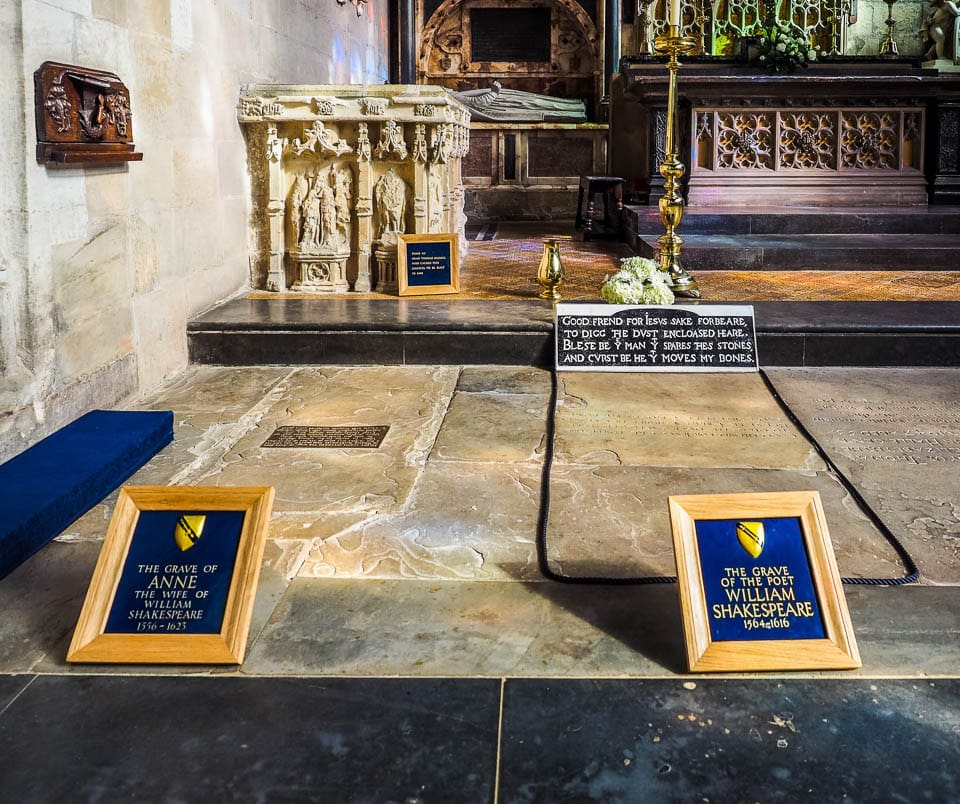
The stone slab on the floor covering Shakespeare’s grave is engraved with a unique epitaph. Instead of mentioning anything about Shakespeare, including his name, the inscription is a curse against moving his bones.
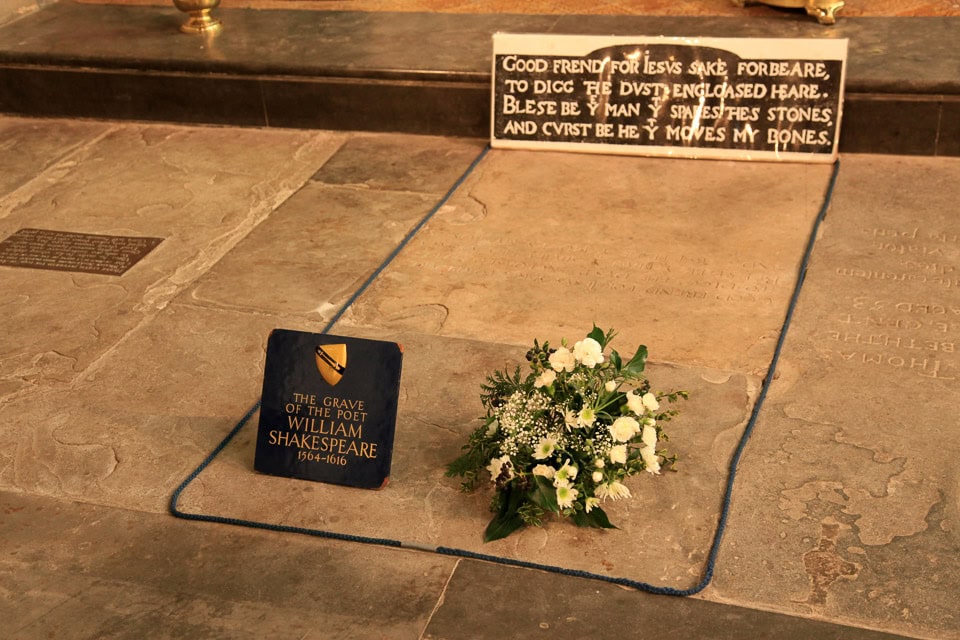
Shakespeare’s Grave Curse
Shakespeare’s grave inscription reads:
Good friend, for Jesus’ sake forbear,
To dig the dust enclosed here.
Blessed be the man that spares these stones,
And cursed be he that moves my bones.
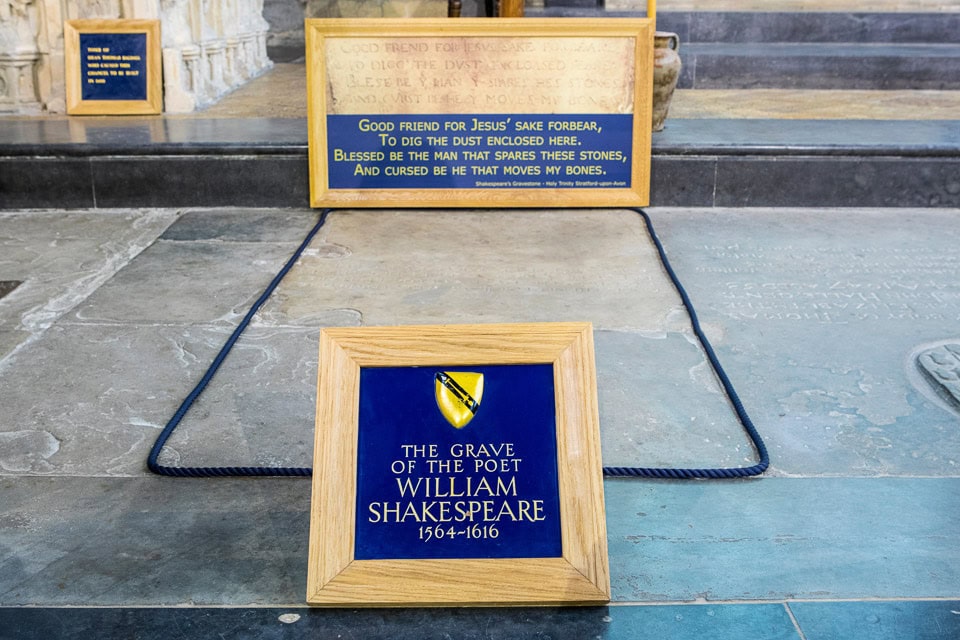
There are a few theories as to why Shakespeare’s gravestone was inscribed with a curse warning against disturbing his remains.
One theory is that Shakespeare didn’t like the idea of potentially having his bones dug up and moved into the church’s charnel house (ossuary) to make room for new burials, a common practice at the time.
Another theory about Shakespeare’s grave curse is that it was to prevent his body from being exhumed for examination and from being reburied in one of the Westminster Abbey graves, where England’s prominent people were laid to rest (instead a memorial statue was later erected in Poets’ Corner).
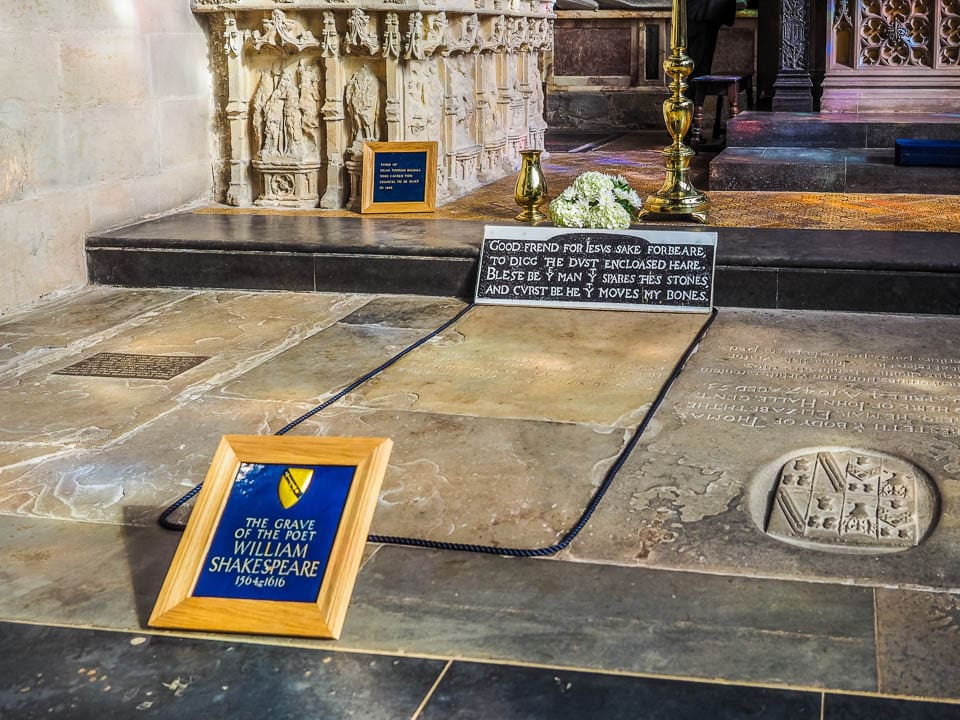
The curse on Shakespeare’s gravestone has worked as Shakespeare’s body remains buried in the Holy Trinity Church and was not moved during church restoration work in 2008.
Shakespeare’s Funerary Monument
Mounted on the wall beside Shakespeare’s grave is a memorial to the writer erected sometime before 1623.
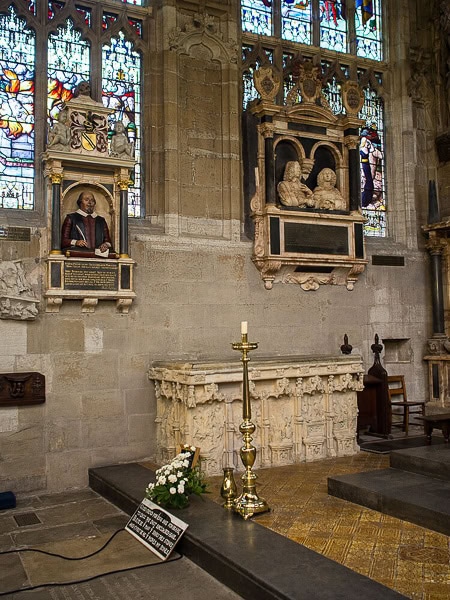
Carved in limestone, Shakespeare’s funerary monument prominently features a painted bust of the poet holding a piece of paper in one hand and a quill pen in the other. The bust is framed by two black marble columns with gilded Corinthian capitals.
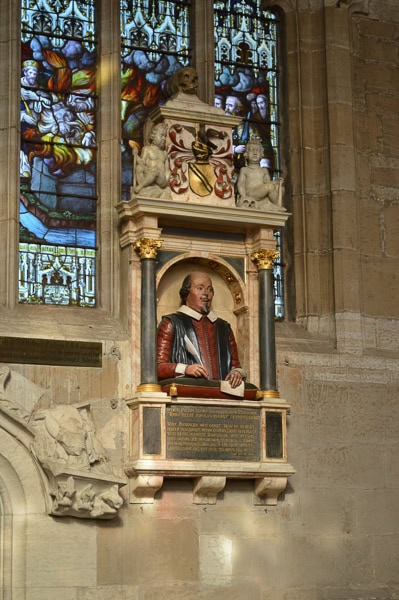
The columns support an entablature on which sits Shakespeare’s coat-of-arms and two putti (chubby male figures) representing labour and rest. Topping the monument is a sandstone skull.
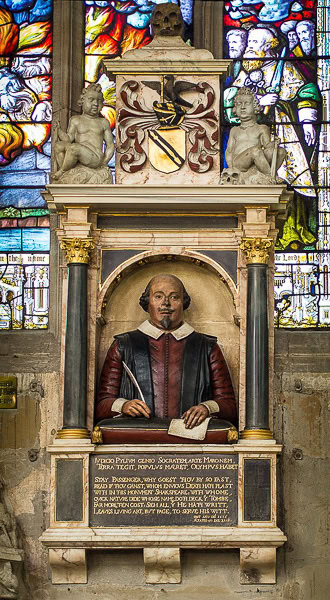
At the bottom of Shakespeare’s funerary monument is a plaque engraved with a Latin epitaph and an English poem.
The epitaph translates to:
A Pylian in judgement, a Socrates in genius, a Maro in art,
the earth buries him, the people mourn him, Olympus possesses him.
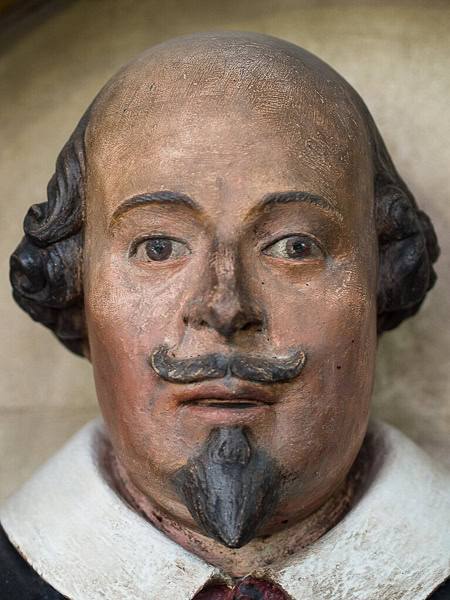
A modernized version of the poem reads:
Stay Passenger, why goest thou by so fast?
Read if thou canst, whom envious Death hath plast
Within this monument Shakspeare: with whom
Quick nature died: whose name doth deck this tomb
Far more than cost: sith [since] all that he hath writ
Leaves living art, but page to serve his wit.
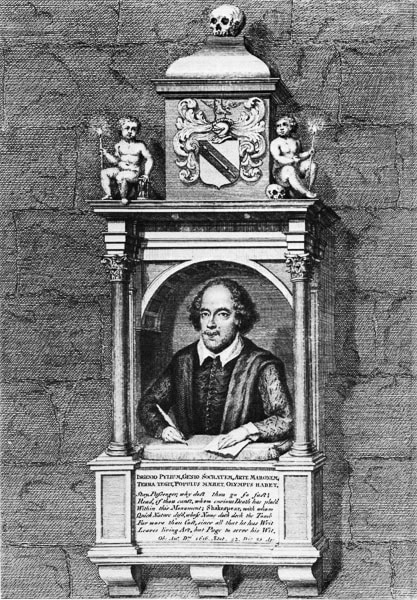
Final Words
Visiting William Shakespeare’s grave can be a meaningful experience for both fans and non-fans of his work. It’s a place to pay respects to one of history’s most influential literary figures, to reflect on the enduring power of storytelling, and to connect with the place where Shakespeare spent his childhood and later years. The unique curse on his grave adds a layer of intrigue and mystery to his resting place.
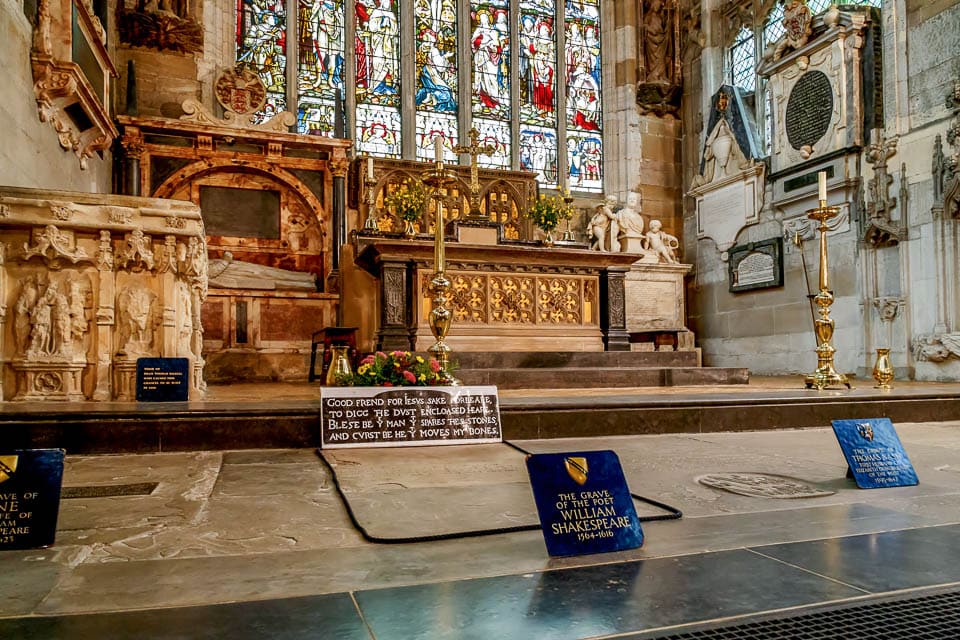
Practical Information for Visiting Shakespeare’s Grave
Location: Shakespeare’s grave is located in Stratford-upon-Avon inside the Holy Trinity Church. The address is 1 Old Town, Stratford-upon-Avon.
Hours: Holy Trinity Church is open for a few hours on Saturdays and Sundays. Confirm current hours here.
Admission Fees: Yes. There is a fee to enter the chancel but the rest of the church is free to visit.
Accommodations in Stratford-upon-Avon
If you’re planning to visit Shakespeare’s burial place and need accommodations, here is a list of hotels in Stratford-upon-Avon. Please consider booking your Stratford-upon-Avon accommodations through the included link. It costs nothing extra and helps support this website.
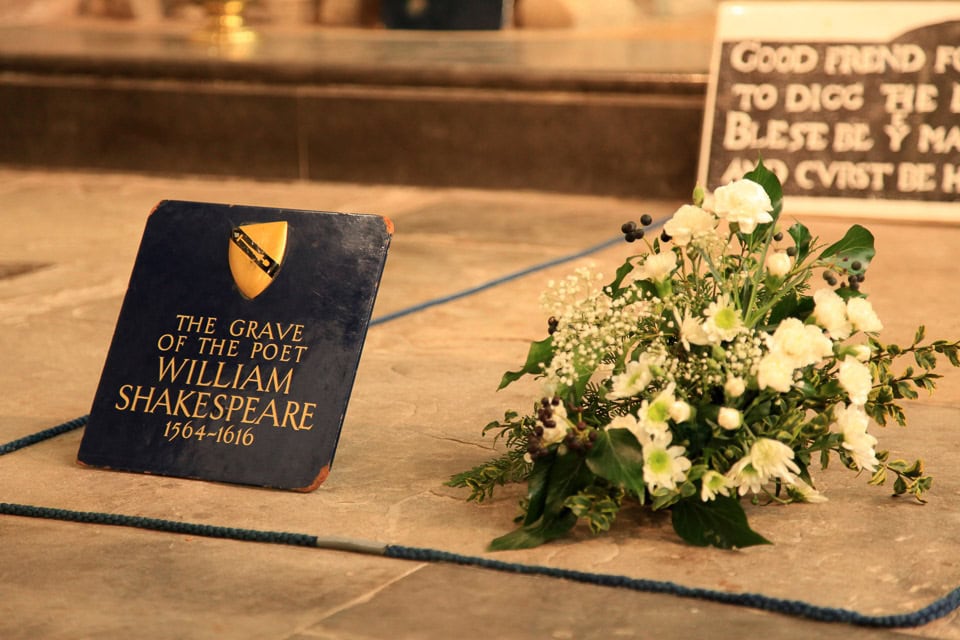
More Burial Places in the U.K. and Overseas Territories
- Westminster Abbey Royal Tombs- The Royals and Monarchs Buried in Westminster Abbey
- Highgate Cemetery Burials- Famous Graves in Highgate Cemetery
- The Magnificent Seven Cemeteries- Victorian Cemeteries in London
- Grytviken Cemetery- Site of Ernest Shackleton’s Grave
